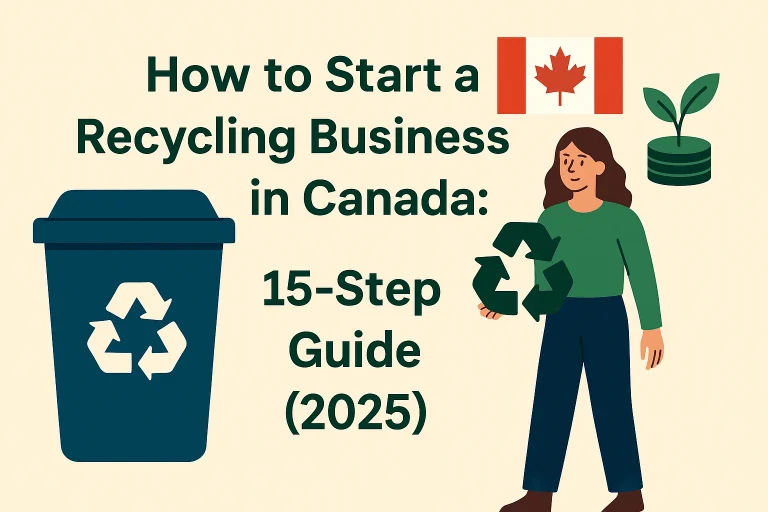
Ever dream of setting up a business that not only yields financial profits but also changes the world for the good? Well, you just have found yourself in the right place! Starting a recycling business in Canada is a great way to carve out that space for your little one to be green while darlling in a growing market. With sustainability being the big thing, 2025 really would be a great year to start joining the recycling bandwagon. God, only He really knows its greatness, might have bestowed Canada with a beautiful terrain, but with waste management comes the greatest of challenges. We are actually one of the countries in the world that produce waste most per person! Sounds bit of a downer, but it is also an enormous opportunity for bright and passionate people like you to step in and help. Canada, meanwhile, recycles only 28% of all the waste generated by its residents, thus, demanding drastic interventions in innovative technologies and processes. So, if you are ready patients to overhaul the scrap business into treasure: Let us begin with a 15-step guide to help you establish a recycling business in Canada. To ensure consistency and visibility, always have the best web hosting service in Ontario for your online presence as you take your first footsteps. Step 1: Discover Your Niche – What Kind of Recycling Guru Will You Be? Before embarking on a waste-gathering spree, you ought to choose the kind of waste recycling business best suited to your personality. Waste management, however, is indeed an exotic thing! Do you fancy: Residential curb side collection: The classic "blue box" model, although it may be put to uncommon uses or focused on more difficult-to-recycle items. Commercial waste management: Targeting businesses, offices, and industrial sites for their recyclable materials--from cardboard to specialized industrial waste. Specific materials recycling: Building a name around one or two types of materials such as: Plastics--much in demand for recycling, yet Canada recycles plastic at a rate lower than 9%. Perhaps you could target PET, HDPE, or an even nicher plastic. E-waste--These contain valuable metals and harmful substances that need to be recycled properly. Construction and...






